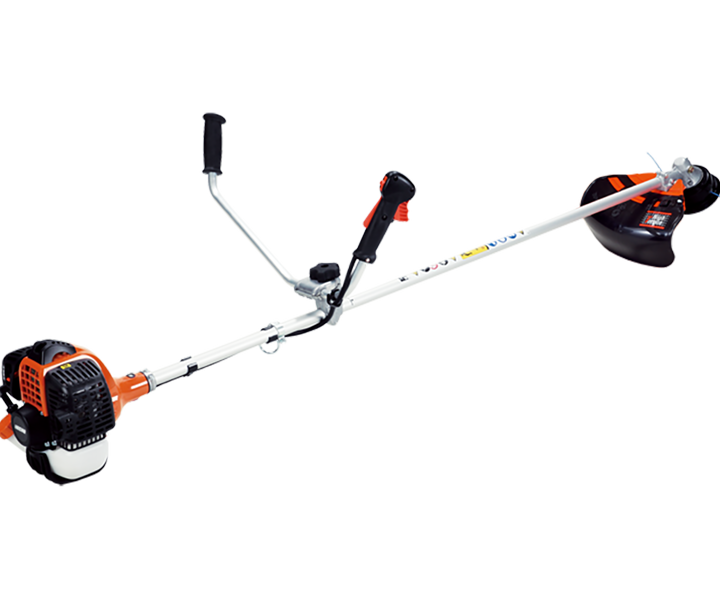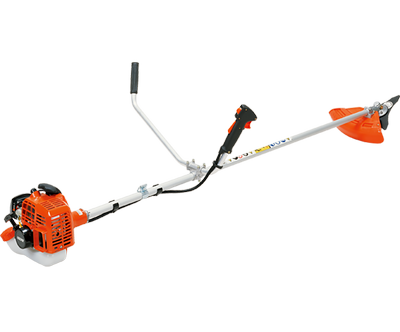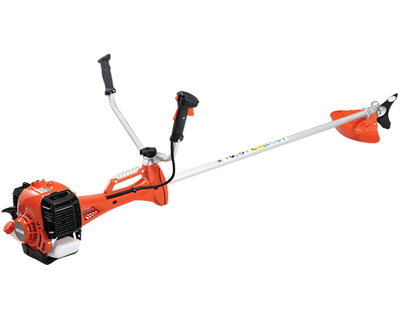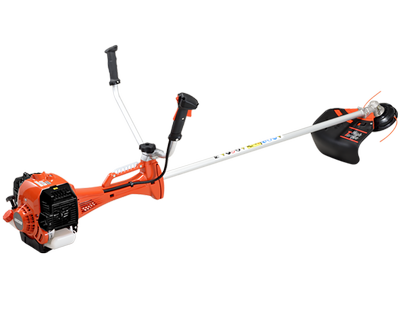The ECHO SRM-300TE/U features a high tensile steel drive shaft and low vibration technology. It has a powerful 28.1cm³ engine and weighs just 5.8kg. ES Start technology ensures easy starting every time and the high torque gear case means you can power through the toughest jobs.
SRM-300TES/U
Designed for landscapers, the U-handle SRM-300TES/U High Torque brushcutter is light weight and powerful.
€370.00
Where to buy

High torque.
The -1 : 2.07 gear reduction ration generates massive torque against the engine displacement. This means you can power through tough and dense brush whilst maintaining a clean a precise cut.

U handle.
U handle brushcutters make big jobs a lot more comfortable by supporting the unit's weight and providing a fix range of movement. Simply attach your brushcutter to an ECHO harness and get the job done in comfort.

Powerful and light weight.
With a 28.1cm³ engine and a high torque gear case the SRM-300TE/U generates incredible levels of power. Combine this with an ergonomic frame that weighs just 5.8kg and you have the perfect companion for mid sized to large professional jobs.
Best Features.
Power to Weight Ratio
Super light-weight design with exceptional power.
Ergonomics
Designed to maximise efficiency and comfort.
Easy start engine
ECHO’s patented system for effortless starting.
Product Details.
| Engine displacement (cm³) | 28.1 |
|---|---|
| Output (kW) | 0.9 |
| Output (ps) | 1.2 |
| Dry Weight (kg) | 5.8 |
| Fuel tank capacity (l) | 1.01 |
| Fuel Consumption At Maximum Engine Power (L/h) | 1.05 |
| Carburettor | Diaphragm |
| Start Assist System | ES-start |
| Drive shaft diameter (mm) | 7.0 |
| Main pipe diameter (mm) | 25.0 |
| Gear reduction ratio | 2.07 |
| Standardised Nylon Head (Item Number) | X047-000332 |
| Sound pressure level (dB(A)) Blade/Nylon head | - / 93.1 |
| Sound power level (dB(A)) Blade/Nylon head | - / 104.9 |
| CO² (g/kW・h) 1 | 1194 |
| Vibration Left handle/Right handle (m/s) Nylon head | 3.3 / 3.1 |
| Standardised Nylon Head | Z5 M10L |
- 1
- This CO² measurement results from testing a (parent) engine representative of the engine type (engine family) over a fixed test cycle under laboratory conditions and does not imply or express any guarantee of the performance of a particular engine.



